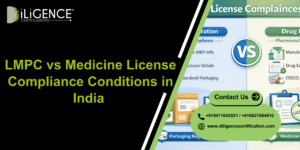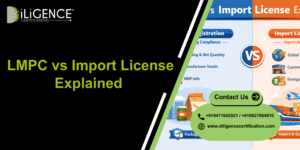



End-to-end certification and regulatory compliance for Indian and global markets.
 BIS Certification
BIS Certification
 CDSCO
CDSCO
 CPCB
CPCB
 LMPC
LMPC
 WPC Approval
WPC Approval
 Global Approvals
Global Approvals
 TEC
TEC
 ARAI
ARAI
 BEE
BEE
 ISO Certification
ISO Certification
 Drone Registration
Drone Registration
 NOC For Steel
NOC For Steel












































Apart from product certification, BIS is responsible for framing Indian Standards, conducting laboratory testing, and ensuring consumer protection.
Some items must be certified before they get released mysteriously made for select goods like cables, switches, cement, gas cylinders, etc.
It ensures electronic products conform to Indian Standards (IS).Covers 70+ products including laptops, phones, adapters, TVs, and batteries.
Hallmarking Certification is mandatory in India for gold and silver jewellery.The BIS 916 Hallmark confirms 22K gold purity.Silver Hallmarking is compulsory for certain grades like BIS 925.
FMCS Mark Certification is a BIS-led approval process that enables foreign manufacturers to sell regulated products in the Indian market.
It helps manufacturers build trust and create a compliance framework. It also markets to eco-conscious consumers.This guide will detail eligibility, provide information on the application procedure, and outline benefits of certification to ISO 14024.
It is governed by NABL under the Quality Council of India (QCI).Accreditation enhances trust among regulators, industries, and global partners.
The World Manufacturer Identity (WMI) is a globally recognized code used to identify vehicle manufacturers. WMI registration ensures traceability, compliance, and global brand recognition for automotive makers.
Stay ahead of regulatory changes with BIS Scheme X Certification. Now extended to September 1, 2026, under the omnibus technical regulation order 2024. Get complete certification support from Diligence Certification.
Get full assistance for CDSCO registration, medical device import licenses, and cosmetic import licenses with Diligence Certifications. Our expert guidance and comprehensive support ensure your compliance, helping you gain a competitive edge in the market. Your satisfaction is our commitment!
Diligence Certifications is a top-tier name in drug licensing and provides topmost service and knowledge support to all sizes of pharmaceutical companies. Our seasoned team understands the global regulations and has seen several success stories.
Having trouble securing Cosmetic License certification in India? Let our ISI certification experts assist you in achieving it and boosting your credibility!
Get expert guidance on Medical Device Registration in India. Learn CDSCO approval process, documents, fees & compliance for manufacturers and importers.
Secure your CPCB Certification with ease and align your business with environmental regulations and sustainable practices. Our expert team streamlines the application process, offering tailored guidance to meet your unique EPR compliance requirements.
Need assistance in Battery Waste Certification? Our experts guide you through every step to ensure smooth and compliant processing.
E-waste has become one of the most serious problems of the modern world, as technology is changing very fast. Discarded electronics items such as smartphones and refrigerators contain very toxic elements hazardous to human health and the environment if not treated properly.
Tyre wastage is an increasing global problem. It threatens to engulf the world in a sea of rubber with disastrous consequences for the environment and human health.
Diligence Certifications help businesses go a long way in environmental compliance matters through their management of plastic waste compliance. It rallies your commitment to reducing environmental impacts, increasing your recycling, driving circular economies and, hence, building credibility with consumers as citizens of a wider world contending against plastic pollution with angels and regulators.
Having trouble in getting EPR registration for your oil products in India? Let the experts do it for you and give credence to your products!
The No-Objection Certificate has special relevance for a business; from needing it while applying for a loan, selling property, or for an application to pursue higher education, there are multiple situations where one has to face the need for an NOC.
Get Full Assistance for Model Approval for Indian W&M Instruments and Importer Registration for Weight and Measurement Instruments with Diligence Certifications. We prioritize your success by providing expert guidance and comprehensive support for all your LMPC Certification needs, helping you gain a competitive edge in the market. Your satisfaction is our commitment, and we work tirelessly to ensure it, now and in the future.
The Diligence Certifications for Packaged Commodities Certification ensures the product conformity with the regulatory requirements. It assesses your product labeling, weight, and quality for compliance with legal requirements and gives transparency and consumer trust. This certification is an instrument of defense against wrong packaging for business and consumers alike and shows your commitment toward fair trading practices and market integrity.
Diligence Certifications offers provision of LMPC Import License Certification under Legal Metrology Packaged Commodities rules with respect to process of importation of goods into India for compliance. Our proficiency ensures that your labeling and packaging for products meet the requirements for easy clearance of goods through customs. It certifies approval from the regulators, having legal backing and gaining confidence of consumers and authorities.
The legal metrology certification is gaining importance in today’s ever-changing context of business with emphasis on fair trade and consumer protection. There is a fresh perspective on maintaining the true measurement and weighing-related activities on account of the fact that with almost every passing day, market growth and transaction complications are assuming greater magnitude.
The company is authorized to undertake the LMPC Manufacturer Registration if it manufactures weights and measures within India. This registration under the Legal Metrology Act guarantees fair and correct transaction laws for business and trade activities through LMPC certificate registration. Let us demystify all the information you would require below.
Get Full Assistance for Non-Network License, Network License, and Equipment Type Approval with Diligence Certifications. We prioritize your success by providing expert guidance and comprehensive support for all your WPC Approval needs, helping you gain a competitive edge in the market. Your satisfaction is our commitment, and we work tirelessly to ensure it, now and in the future.
The Diligence Certifications grant a fast track to the acquisition of WPC Import License, making the imports of communication devices 100% compliant with WPC Certification. Based on our experience and expertise, we ready you for the licensing processes in such a way that your product conforms with all technical standards and is safely usable within India. The certification would guarantee acceptance by regulators, therefore cultivating such trust with the authorities and end users.
Today-connected world, indeed, keeps the promise of wireless devices. Today manufactured devices include laptops, smartphones, portable WiFi hotspots, WiFi extenders, and smart home appliances. However, with this pressing usage, there is a huge demand for safety and performance requirements.
In this hyper-connected age, wireless access points, portable Wi-Fi routers, and other radio frequency (RF) devices are indispensable. When any of these products are manufactured, imported, or sold in India, the knowledge of and acquiring Equipment Type Approval (ETA) becomes imperative; that’s how Diligence Certifications will help you obtain your WPC Certification more conveniently.
In today’s world with increasing environmental consciousness, it is vital to dispose of equipment properly after the intended lifetime. Targeting hazardous e-waste is one of the vital roles played by RoHS; elaborately explaining RoHS certification itself, RoHS objectives, substances involved, certification processes, and applicability in curbing environmental contamination.
Diligence Certifications provides UL (Underwriters Laboratories) Certification services to ensure your products comply with rigorous safety and performance standards. Our skilled team supports you throughout the certification process, ensuring full adherence to UL requirements. Achieving UL certification with us boosts your product’s credibility, fosters consumer confidence, and highlights your dedication to safety and quality in the market.
KC Certification is a major mandatory condition for many products that are developed to reach Korea’s genuine profitable consuming market. KC Certification is otherwise known as KC Registration or simply the Korean Certificate, and denotes compliance with Korean safety standards and regulations.
Struggling with FCC certification in India? Our expert team at Diligence Certifications can help you navigate the process effortlessly, ensuring your electronic devices meet all compliance standards. Boost your credibility and market access with FCC certification today!
Among these is the CE Marking, which is especially pertinent to manufacturers who are considering selling their products in the European Economic Area (EEA).
CB stands for Certification Bodies Scheme.An international system operated by IECEE (IEC System for Conformity Testing and Certification of Electrotechnical Equipment and Components).Facilitates mutual recognition of test results among participating countries.Enables global market access for electrical and electronic products.Reduces the need for multiple testing and certification in different countries.
The SAFTA certificate online enables reduced customs duties under the SAARC trade agreement.Businesses can apply for a SAFTA certificate digitally through authorised agencies in India.This document is vital for proving origin and unlocking tariff benefits.
You can apply online for your MSDS Certificate in India through many trusted compliance and safety services.This documentation allows the company to maintain regulatory safety and hazard management which also protects the world you operate in.
SALEEM / SABER system is the online conformity platform linking exporters, certification bodies, and customs.Two stages: Product CoC (PCoC, valid one year) and Shipment CoC (SCoC, per consignment).
It replaces the CE marking post-Brexit and is mandatory for most regulated products.Indian manufacturers exporting to the UK need UKCA marking to stay compliant.
Get Full Assistance for TEC Type Approval, TEC Interface Approval, TEC Certification Approval and TEC Approval of Technology with Diligence Certifications. We prioritize your success by providing expert guidance and comprehensive support for all your TEC Approval needs, helping you gain a competitive edge in the telecommunications market. Your satisfaction is our commitment, and we are dedicated to ensuring it now and in the future.
Get full assistance for ARAI Vehicle Certification for vehicles, engines, and components with Diligence Certifications. With over 25 years of experience, we prioritize your success in gaining a competitive edge in the automotive market. Trust our expert guidance for all your ARAI certification needs.
Having trouble securing BEE Star Rating Certification in India? Let our ISI certification experts assist you in achieving it and boosting your credibility!
It is critical to understand how to get ISO Certification for audit and compliance purposes.Read on to learn step-by-step how to get ISO certified in India with expert assistance.
It is critical to understand how to get ISO Certification for audit and compliance purposes.Read on to learn step-by-step how to get ISO certified in India with expert assistance.
It is critical to understand how to get ISO Certification for audit and compliance purposes.Read on to learn step-by-step how to get ISO certified in India with expert assistance.
It is critical to understand how to get ISO Certification for audit and compliance purposes.Read on to learn step-by-step how to get ISO certified in India with expert assistance.
It is critical to understand how to get ISO Certification for audit and compliance purposes.Read on to learn step-by-step how to get ISO certified in India with expert assistance.
It is critical to understand how to get ISO Certification for audit and compliance purposes.Read on to learn step-by-step how to get ISO certified in India with expert assistance.
It is critical to understand how to get ISO Certification for audit and compliance purposes.Read on to learn step-by-step how to get ISO certified in India with expert assistance.
Drones above nano size must be registered on Digital Sky and obtain a UIN, Type Certificate, remote-pilot certificate (for commercial use), and insurance—while adhering to airspace rules and NPNT protocol.
Importing steel into India? Get your No Objection Certificate (NOC) under the Steel Quality Control Order (QCO) without delays or compliance risks. Diligence Certifications offers complete support for steel importers—ensuring your products meet Ministry of Steel and BIS regulations, and helping you avoid customs issues, rejections, or penalties. Stay legally compliant, save time, and streamline your steel import process with our expert certification services.
End-to-end certification and regulatory compliance for Indian and global markets.
 Business Registration
Business Registration


















In addition, you will be briefed on how Limited Liability Incorporation protects you and how Diligence Certifications may assist one in navigating the certification process.
Diligence Certifications streamlines the One-Person Company (OPC Registration in India) registration process, ensuring compliance with all.
Starting a Limited Liability Partnership (LLP) can be a strategic move for entrepreneurs looking to combine the benefits of a partnership with the advantages of limited liability partnership.
Starting a business is an exciting venture, and choosing the right legal structure is a crucial first step. For many entrepreneurs, a partnership firm offers a flexible and collaborative way to operate.
Unlock the exclusive benefits and enhance the startup with Startup India Registration – along with that Diligence Certifications can help you with the whole process and ensure that every requirement is fulfilled for a successful Startup India Registration in India.
Are you really into making a difference or starting your own Non-Governmental Organization (NGO Registration) in India? We will also mention how Diligence Certifications can assist you in such cases.
The PESO License framework establishes mandatory approval processes for products relevant to the oil and gas sector, particularly those involved in gas handling or intended for use in corrosive environments prevalent in the industry.
The registration process begins with gathering mandatory documents such as PAN, GST, bank details, and Aadhaar/DSC.
Well, at this point, are you really ready to take it to the next level? The formation of Private Limited Company Registration in India is often considered to be a strategic alternative by most entrepreneurs since it provides credibility combined with a limited liability and a scope for future investments:
Our expert team provides comprehensive guidance through each step, from documentation to application submission. With our assistance, you can establish your subsidiary efficiently, gain legal recognition, and leverage opportunities for growth in the Indian market.
The Producer Company Registration offers this sort of power to farmers to organize and run businesses for their mutual benefit collectively.How Diligence Certifications can facilitate the process with credibility for a Farmer Producer Company (FPC).
It offers a straightforward setup and direct control, making it the most popular and straightforward business structure in India.
With our assistance, you can establish your partnership with confidence, define roles and responsibilities, and set the foundation for successful collaboration.
Setting up a new enterprise should be exciting, even though there are deterrents in legal implications. That is a journey almost every business-making entity undertakes, from the littlest to the largest-the Shop and Establishment Registration.
Our expert team provides comprehensive support throughout the registration process, from documentation to application submission. With our assistance, you can access government benefits, secure funding opportunities, and enhance your business credibility in the competitive market.
FSSAI mark certification is an important regulatory mechanism that guarantees strict adherence to food safety and quality standards by all food products manufactured, imported, and sold in India.
No longer complicated definitions for you; just straight, simple, useful information that will get your business going.
End-to-end certification and regulatory compliance for Indian and global markets.
 Legal Services
Legal Services
 Trademark Registration
Trademark Registration
 Copyright Registration
Copyright Registration
 Patent Registration
Patent Registration






















































Building a strong brand is very important for succeeding in today’s competitive marketplace. A clearly defined brand helps you stand apart from the competition, gain customer loyalty, and earn a name in market value. But what happens when someone else decides to copy or misuse your brand? This is where Trademark Registration comes into play.
Trademark objection? Get a professional, accurate reply with fast support and proper documentation to avoid rejection.
A Trademark Assignment legally transfers trademark rights to a new owner, protecting business interests and securing brand ownership.
Facing trademark record issues? File a Trademark Rectification to fix errors, remove wrongful entries, and protect your brand.
Renew your trademark on time to protect your brand rights, avoid cancellation, and keep it active effortlessly.
Trademark Licensing lets others use your brand while you retain ownership, helping you expand reach, earn royalties, and protect your rights.
Trademark Opposition helps stop conflicting trademark registrations and protects your brand rights.
Register your copyright to legally protect creative work like music, writing, software, and designs. Secure exclusive rights and safeguard your IP.
Need a Copyright Disclaimer? Learn its importance and get guidance to protect your content from misuse—ideal for creators, websites, and businesses.
Protect your creative work and earn with Copyright Licensing. Grant legal usage rights, keep ownership, and prevent copyright violations.
Handle Copyright Objections with expert support. Submit proof, clarify details, and protect your creative ownership from rejection.
Copyright Assignment legally transfers creative ownership. Ensure a safe, dispute-free transfer with proper documentation and expert support.
Register your patent to legally protect your invention, prevent unauthorized use, and secure commercial rights.
Indian Patent Search checks if your invention is unique, helping avoid legal issues and improve approval chances.
Patent Opposition lets you challenge duplicate or false patent claims. File with proper proof to protect your innovation rights.
Patent Revocation removes wrongly granted patents, protecting your business by cancelling invalid claims through legal action.
A few years ago, a Bangalore-based electronics manufacturer contacted our advisory team. Their R&D engineers had designed a new energy-efficient circuit, but soon after launching the product, a competitor issued a legal notice claiming patent infringement.
Once we examined the competitor’s patent, the truth surfaced — the “invention” was already known in the global domain several years earlier. It should have never been granted. We stepped in, filed a patent revocation request, and the monopoly ended.
Stories like these happen frequently — and every invalid patent left unchecked becomes a barrier to innovation, business expansion, and consumer choice.
This page explains everything you must know about patent revocation in India, who can apply, legal grounds, timelines, and the role of specialists in securing your rights.
Patent revocation is a legal remedy used when a granted patent should not have been approved in the first place. If you believe that an invention has been wrongfully patented, or the rights were obtained through misleading means, you can challenge the validity of the patent before the competent authority.
In India, patent revocation can be initiated:
Earlier, such matters were handled by the Intellectual Property Appellate Board (IPAB), but now the jurisdiction lies with designated courts for better judicial oversight.
A revocation action may be filed by any aggrieved or interested party, including businesses and individuals, who suffer or may suffer harm due to the existence of the patent.
In India, patent revocation is the process of removing patent rights that were previously granted in accordance with the Indian Patents Act, 1970. Patent revocation is the official termination of the exclusive rights of a patent holder when a patent is determined to be invalid or improperly granted.
Any interested party, such as a competitor, industrial actor, researcher, or business who is affected by the patent, can file for revocation by substantiating valid legal grounds and presenting evidence in support of these legal grounds. The Central Government can also file for revocation in cases in which an invention is patented but has implications for public interest or national needs.
The law gives the Government the ability to approach the High Court when:
The patent holder refuses on unreasonable grounds to allow the Government to use the patented invention on terms that are reasonable and just.
If the High Court is satisfied that the patent holder is indeed refusing to allow access on reasonable and just terms and that, as a result, public welfare, be in the field of healthcare, national defense, or energy, is endangered, the patent could be revoked completely. Subsequent to any revocation of a patent, the invention can be utilized publicly and there will be no monopoly hindering any other possible alternative for use in the same market or space.
Patent law in India is structured to ensure that no monopoly continues if it harms innovation, public welfare, or national interests. Apart from the standard revocation grounds under Section 64 of the Patents Act, several additional provisions allow the Government or any eligible party to challenge and revoke a granted patent.
These provisions exist to uphold fairness, ethical innovation, and India’s national security priorities.
India maintains strict safeguards over critical national technologies. Under Section 65, if the Central Government determines that a granted patent relates to atomic energy or involves any application that may threaten national security:
The Government has the power to revoke the patent entirely.
The Indian legal framework clearly prohibits granting exclusive commercial rights over inventions concerning atomic energy. Large industrial companies and research organisations are often screened under this provision to prevent misuse of strategic technology.
Patent rights are exclusive, but not absolute. Section 66 ensures the Government can intervene if:
is considered mischievous to the public or prejudicial to the State.
However, the law mandates natural justice:
The patent holder must be heard and given a fair opportunity to justify the commercial use of their invention before any cancellation order is passed.
This section is typically invoked when a patent is used to create unfair pricing, artificial scarcity, or exploitation impacting healthcare, agriculture, energy or essential commodities.
Patents must serve society — not sit unused in portfolios. Under Section 85, if:
✔ A patent has already been issued a compulsory licence
✔ Yet is still not being worked or commercially used in India
an interested party or the Government may request its revocation by the Controller.
This ensures that holders of critical technology — especially foreign entities — cannot hinder the development of Indian markets by refusing to manufacture locally or blocking competition.
(Section 64 – Patents Act, 1970)
A granted patent may be revoked if ANY of the following legal grounds are established:
Under Section 64 of the Patents Act, 1970, applications for revocation can be filed by:
This ensures the public and the Government have equal power to prevent unfair monopolies over unqualified patents.
Organisations often need strong legal support when challenging a patent. Diligence certifications offers:
✔ 10+ Years of Expertise
Experienced lawyers successfully handling complex IP litigation.
✔ 1500+ Satisfied Clients Across India
Trusted by both Indian and global businesses.
✔ Strategic Legal Advisory
Comprehensive planning to strengthen revocation claims.
✔ Complete Documentation Support
Drafting, filing, legal correspondence, and compliance handled end-to-end.
✔ Thorough Patent Evaluation & Audit
Expert review of specifications, prosecution history and prior art.
✔ Transparent Processes
Clear communication and fair representation of facts.
✔ Seamless Legal Proceedings
Coordinated workflow with High Courts and the Patent Office.
✔ Tech-Driven Solutions
Efficient research and data analytics for stronger petitions.
✔ Post-Revocation Monitoring
Protection against future conflicting filings.
✔ Fast & Diligent Legal Action
Timely filings and proactive follow-ups to avoid delays.
✔ Strong Professional Network
Patent agents, IP attorneys and technical specialists on board.
✔ 24/7 Client Assistance
Prompt support throughout the legal cycle.
Patent revocation serves a vital role to safeguard honest innovators from abusive monopolies, issuing in challenges to patents that lack novelty, contravene statutory requirements, or otherwise seek to inhibit free-market competition. While patent revocation is an option for organisations confronting patent enforcement threats, it is not just a defensive tactic — it is a smart strategy for protecting commercial freedom.
If you are facing a dubious patent or an infringement notice, our legal experts can guide you in your evidence-based case, including High Court representation, and provide overall procedural guidance. Speak with our team to secure your innovative future, with the correct patent revocation strategy to support your needs.
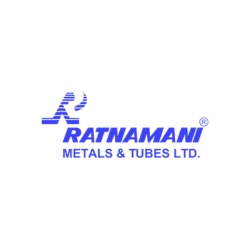
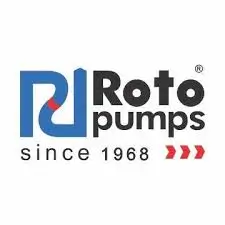
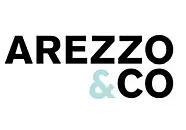


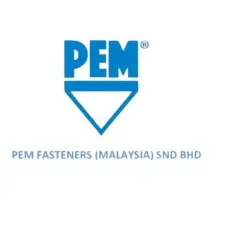
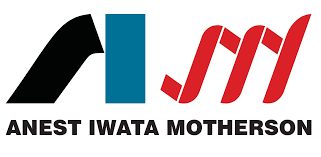























The legal termination of patent rights previously granted.
Any interested individual, the Central Government, or a defendant in an infringement case.
Section 64 of the Patents Act, 1970.
Lack of novelty, obviousness, fraud, non-working and wrongfully obtained invention.
Before the High Court having jurisdiction.
1 to 3 years depending on the matter and proceedings of the court.
Yes, it can be filed as a counterclaim in a infringement case.
The patent no longer exists and will become free for anyone to use.
Yes, decisions made can be appealed to a higher court.
Definitely, due to complicated nature of patent law, and proof of technical support.
